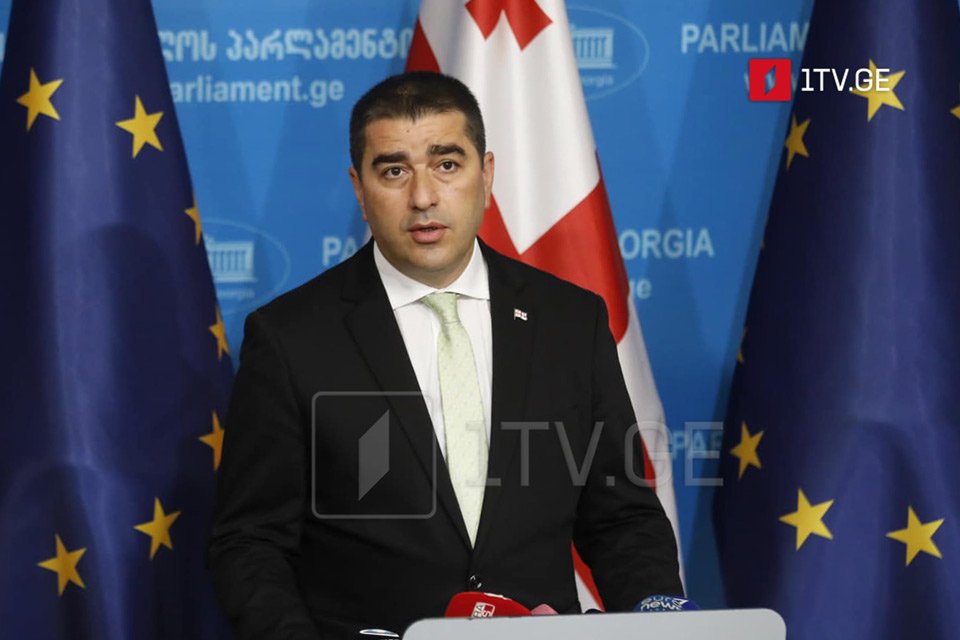Speaker says EP resolution is nothing but attack on Georgian people
“The resolution of the European Parliament has no power, except that it is an attack on the Georgian people, and they once again showed their face, what attitude they have towards the Georgian people,” Chairman of the Georgian Parliament Shalva Papuashvili told reporters, talking about the resolution of the European Parliament regarding the resubmitted Transparency of Foreign Influence bill.
According to Papuashvili, the resolution is a stance of “several angry MEPs.”
“The MEPs are in the ruling council, for instance, of the European Endowment for Democracy (EED), which covertly finances the romanticization of Molotov Cocktails and political parties in Georgia. It is in its interests to keep funds concealed. They try to use their opportunities in the EU for the attack on the Georgian people. The resolutions are their weapon. This resolution has no power, rather it is an attack on the Georgian people, showing their attitude towards the Georgian people. The resolution also reads Mikheil Saakashvili (jailed ex-president) should be released. Nothing threatens the Georgian population. It is the stance of several angry MEPs. Visa liberalization will in no way be hindered. The mandate of these people expires in several weeks. The elections are in June, and this is their last fight,” said the Speaker.
Five groups in the European Parliament on April 24 drafted a joint motion for a resolution on “attempts to reintroduce a foreign agent law in Georgia and its restrictions on civil society.” The EP supported it on April 25 with 435 votes in favour. The resolution calls for the release of ex-president Mikheil Saakashvili, the sanctioning of Bidzina Ivanishvili (GD founder) and the recalling of the draft law on changes and transparency against LGBT propaganda.
The resolution text also touches upon visa liberalization:
“The European Parliament calls on the Commission to promptly assess the impact of Georgia’s planned ‘foreign agent’ law on Georgia’s continuous fulfilment of the visa liberalisation benchmarks, in particular the fundamental rights benchmark, a crucial component of the EU visa liberalisation policy.”
